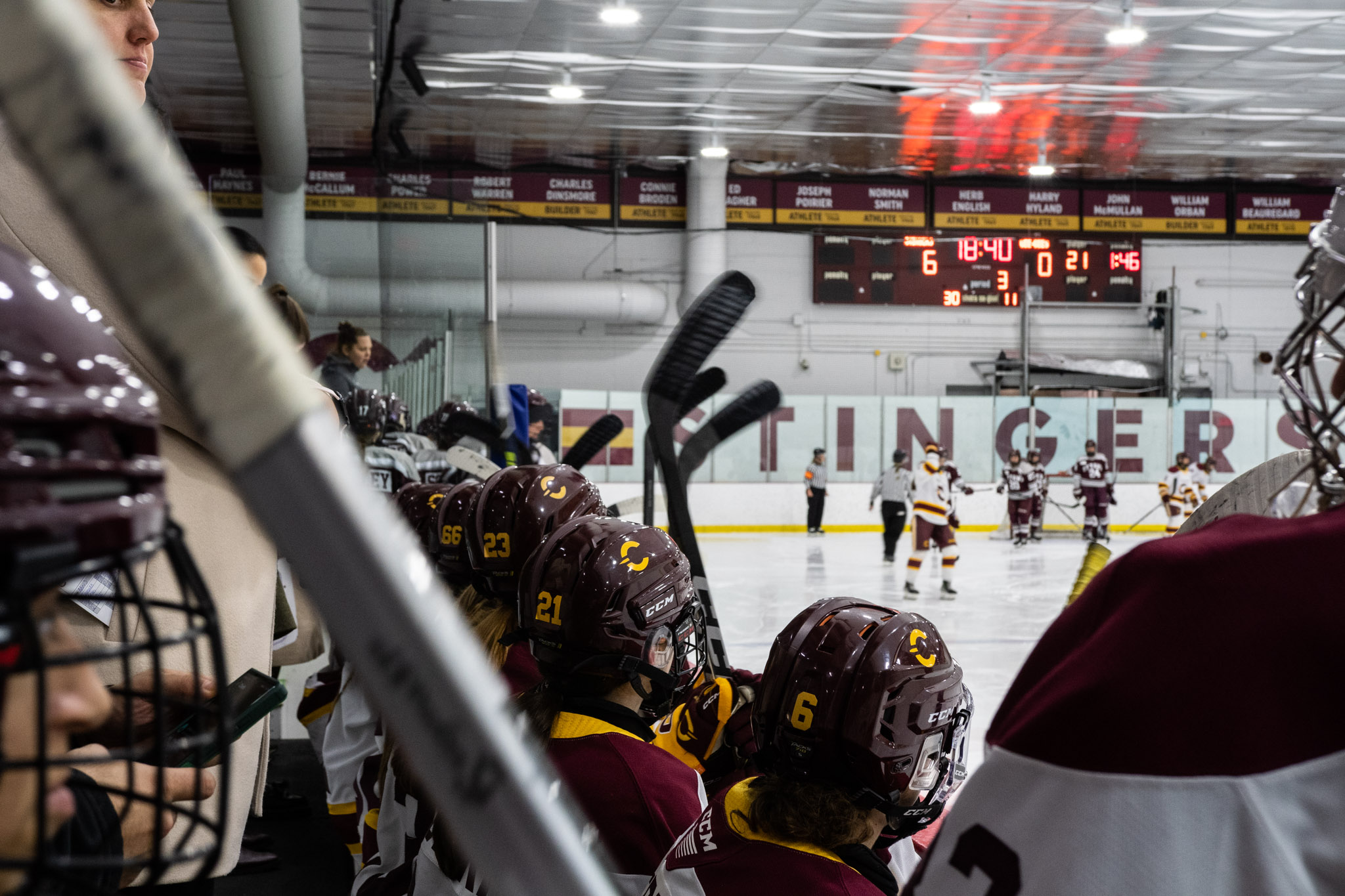The four-time Olympic gold medalist became the 10th woman to get the call from the Hall.
On Nov. 13, the annual Hockey Hall of Fame induction ceremony was held. In the Hall are about 300 legendary players and 115 builders who helped grow the game of hockey. During the 2023 meeting of the Hall of Fame Selection Committee on June 21, Caroline Ouellette’s nomination was a no-brainer despite it being only her second year on the ballot.
The road to this point for Ouellette was never an easy one. The player shared in her acceptance speech that when she was growing up, it took her two years to convince her parents to allow her to play hockey. Once she was able to convince her mom to help her buy her first pair of skates at the age of nine, Ouellette played on different all-boys teams until she was 17.
“I heard about every possible type of name-calling,” Ouellette shared during the speech. “These challenges helped me develop a deeper appreciation of how lucky I was to play hockey when so many women around my age couldn’t have the same opportunity,” she said.
Ouellette got her first taste of professional hockey in 1995 when she joined Team Quebec during the Canada Winter Games. She won her first gold medal in 1997, playing for Team Quebec at the National Women’s Under-18 Championship.
After putting up a whopping 60 points in 27 games in the 1998-99 season for the Montreal Wingstar of the National Women’s Hockey League (NWHL), Ouellette played in her first of 12 International Ice Hockey Federation (IIHF) World Championships. She would go on to win six gold medals and six silver medals in World Championships, ranking eighth all-time with 68 points in 59 games played.
In 2000, Concordia University got introduced to the hockey phenom. In her short time playing for the Stingers, Ouellette put up 19 points in just seven games. Oullette moved on to play three seasons for University of Minnesota-Duluth, where she also became the team’s captain for two seasons. Luckily for the Stingers, Ouellette would be back with the team in the future.
Ouellette played in the Winter Olympic Games four times between 2002 and 2014. She became the only ice hockey player to this date to win gold in all four Olympics she took part in. Ouellette put up 26 points in 20 career Olympic games played, cementing her legacy as one of the best international ice hockey players the sport has ever seen.
Having played in her last World Championship in 2015, Oullette played three more years of professional hockey for Les Canadiennes de Montréal in the city where it all began. She rejoined the Stingers as an assistant coach in 2016.
Coaching stints with the University of Minnesota-Duluth, International Canadian teams, and the Concordia Stingers have made up her ongoing career. She is currently the associate coach for the Stingers alongside partner and head coach Julie Chu, and the two have led the team to back-to-back national championship final appearances, including a gold-win in 2022.
